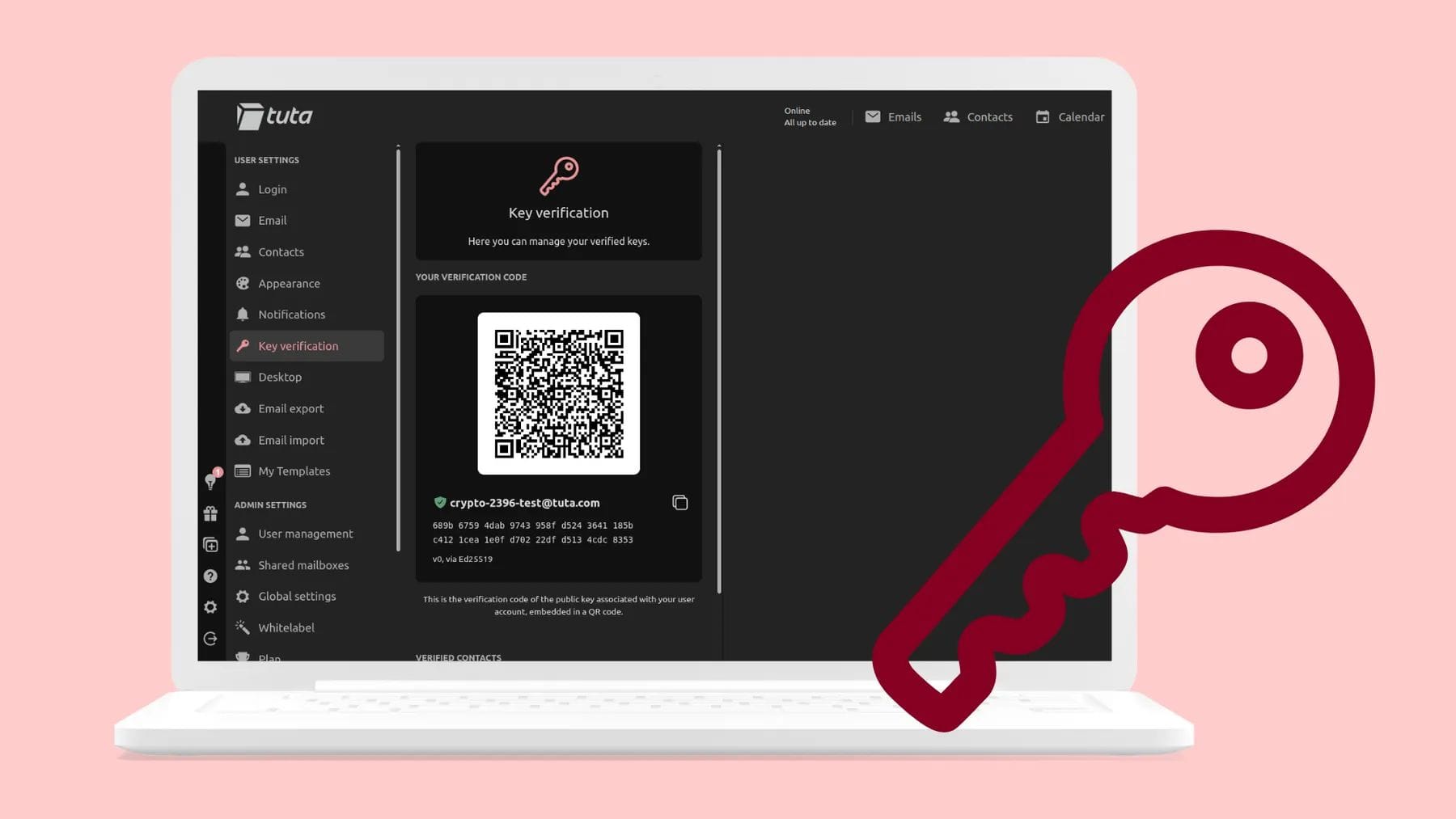
Tuta is a privacy-focused email and calendar service known for strong encryption and user security. The company is among the first to integrate post-quantum cryptography into an email platform, preparing for future threats.
Their approach ensures that quantum computing cannot compromise user messages, while the company continues to innovate with security features that give users more control over their communications.
Three days ago, Tuta introduced a new Key Verification feature. This strengthens encrypted email communications without requiring users to change anything from their side.
Here's What Key Verification Does

Key verification allows users to confirm that a contact’s public key truly belongs to them. This ensures that messages cannot be intercepted by unauthorized parties during exchange.
Verification can be carried out by scanning a QR code if the contact is nearby. This provides a quick and accurate way to verify keys without relying on email alone.
Alternatively, users can manually compare verification codes through the Tuta app. Entering the contact’s email and checking the code ensures the key matches the intended recipient.
Verification is optional but recommended for maximum security. Users who skip it still benefit from encryption, but Tuta Mail will revert to a "Trust On First Use" system.
TOFU automatically stores the contact’s public key at first communication. Any unexpected key changes in later messages trigger alerts, helping users detect potential security risks.
Overall, Key Verification adds an extra layer of trust to encrypted communications. By confirming keys directly, users reduce the risk of man-in-the-middle attacks and can be confident that sensitive information remains private.
The feature also fits seamlessly into Tuta’s ecosystem. Users can continue sending encrypted emails as usual, with this new addition acting as an optional security enhancement rather than a mandatory step.
- Even the biggest players in the Linux world don't care about desktop Linux users. We do.
- We don't put informational content behind paywall. Your support keeps it open for everyone. Think of it like 'pay it forward'.
- Don't like ads? With the Plus membership, you get an ad-free reading experience.
- When millions of AI-generated content is being published daily, you read and learn from real human Linux users.
- It costs just $2 a month, less than the cost of your favorite burger.
Become a Plus Member today and join over 300 people in supporting our work.










